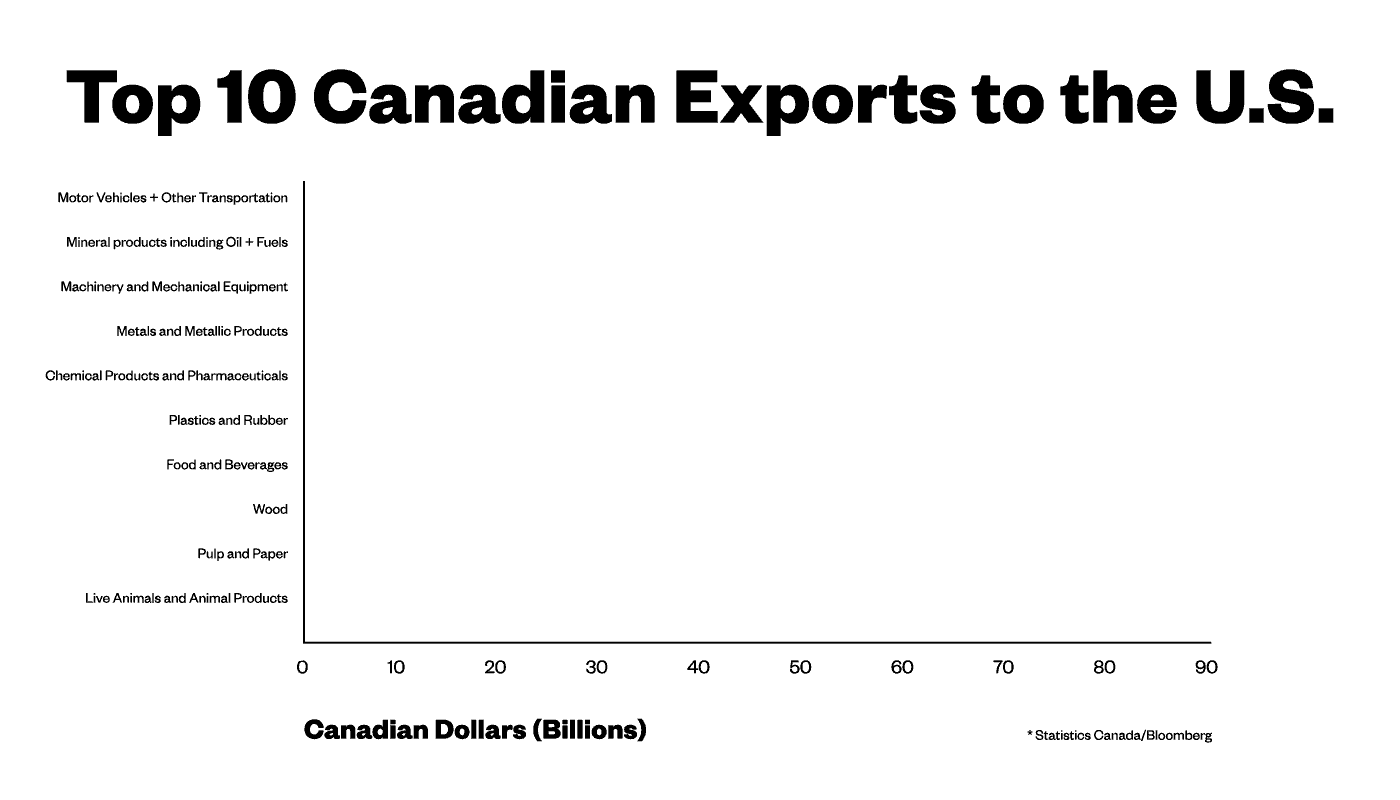U.S. President Donald Trump and Prime Minister Justin Trudeau held a long-anticipated meet and greet at the White House today, and trade was at the top of the agenda. After considerable jitters from the Canadian business community that Trump would begin waging an all-out war on free trade, the president seemed to be fairly subdued on the whole issue of U.S-Canada trade.“I pledge to continue building a stronger trade relationship between the U.S. and Canada,” said Trump at a joint press conference with Trudeau this afternoon. “We are doing some cross-border things that will be implemented fairly quickly. We will be tweaking it (trade agreements?), but it’s a much less severe situation than what has taken place south of the border.”Translation: We’re probably not going to institute that border tax, we might mess around with NAFTA a tad, but we’re going to be focused on Mexico, so don’t worry. When asked how important it was to maintain a positive trade relationship with the United States, Trudeau emphasized how dependent both economies are on each other, as if to reassert Canada’s stance when it comes to the proposed border adjustment tax.“We are always focusing on creating jobs for Canadians, but there are also millions of jobs in the U.S. that are dependent on the current trade partnership we have with the United States.”Canadian auto parts supplier Magna International, for instance, is the biggest parts supplier to General Motors, Ford and Chrysler. “Any impediment to seamless trade across the border between Canada and the U.S. would have a negative impact on the price of vehicles to the buying public and be negative to everybody,” Don Walker, chief executive officer of Aurora, Ontario-based Magna, told Bloomberg last week.When it comes to NAFTA, CIBC Deputy Chief Economist Benjamin Tal believes that there are significant problems with the agreement in its present form, and renegotiating some aspects of it would benefit the United States. “I don’t think he will implement the border tax, but I think he will renegotiate the terms of trade on lumber, dairy and beef,” said Tal.
When asked how important it was to maintain a positive trade relationship with the United States, Trudeau emphasized how dependent both economies are on each other, as if to reassert Canada’s stance when it comes to the proposed border adjustment tax.“We are always focusing on creating jobs for Canadians, but there are also millions of jobs in the U.S. that are dependent on the current trade partnership we have with the United States.”Canadian auto parts supplier Magna International, for instance, is the biggest parts supplier to General Motors, Ford and Chrysler. “Any impediment to seamless trade across the border between Canada and the U.S. would have a negative impact on the price of vehicles to the buying public and be negative to everybody,” Don Walker, chief executive officer of Aurora, Ontario-based Magna, told Bloomberg last week.When it comes to NAFTA, CIBC Deputy Chief Economist Benjamin Tal believes that there are significant problems with the agreement in its present form, and renegotiating some aspects of it would benefit the United States. “I don’t think he will implement the border tax, but I think he will renegotiate the terms of trade on lumber, dairy and beef,” said Tal.
Advertisement
The Trump government has hinted at instituting a 10 percent border adjustment tax, that would charge Canadian companies for exporting products, like car parts, to America. Trump has also brought up the idea of renegotiating NAFTA, which he feels is too favourable toward Canada’s dairy, beef, and lumber industries.Just to give you a sense of what’s at stake if Trump decides to do a 180 on trade, or if his idea of “tweaking” is renegotiating NAFTA altogether, shipments from Canada to the U.S. account for 76 percent of Canada’s total exports. As you can see from the chart below, car manufacturers and the oil and gas sector make up 30 percent of those exports — equivalent to about $60 billion.“We are doing some cross-border things that will be implemented fairly quickly.”

Advertisement
One sector that will definitely not lose out from a Trump presidency is oil and gas. At today’s press conference, Trump pledged cooperation with Canada’s energy sector, committing to “move forward on energy infrastructure projects that will create jobs while respecting the environment.”The Canadian energy sector has been upbeat since Trump’s recent approval of the Keystone XL pipeline and the appointment of Rex Tillerson, former CEO of Exxon-Mobil Corp. as the U.S. Secretary of State.“Canada will lose out slightly from the changes to NAFTA if they take place, but on the big things like energy, Trump is good for us. The net effect is negligible,” Tal said.“I don’t think he will implement the border tax, but I think he will renegotiate the terms of trade on lumber, dairy and beef.”